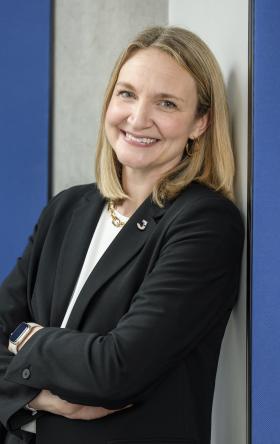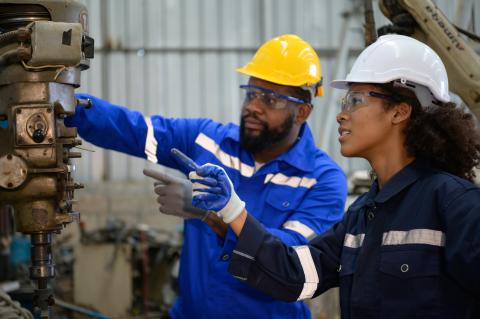When large-scale infrastructure investment is managed effectively, it can lead to positive, long-term outcomes for historically disadvantaged communities. Jacobs, in its global operations, works closely with clients and their constituents, with a strong focus on using purpose-driven mechanisms to dismantle generational barriers to upward mobility. This approach not only creates education, training, and employment opportunities but also leaves a lasting social legacy in the communities we serve, inspiring and motivating our global audience.
As the top global program management firm, as ranked by Engineering News-Record (ENR), Jacobs delivers some of today’s most complex, challenging and iconic infrastructure and transformation programs. Through our work, we have identified three complimentary mechanisms that must be prioritized to unlock and deliver social value and equitable solutions across programs.
- Program delivery
Program delivery allows clients to integrate, measure and evolve multiple initiatives under a unified vision and across a variety of projects and geographies. This approach ensures that outcomes can be realized that are not possible under multiple, segmented contracts. For example, in Baton Rouge, Louisiana, $1.21 billion in sewer system improvements were packaged into discrete projects that could be undertaken by local contractors, keeping the economic multiplier within the region. These efforts included contracting with over 300 contractors (over 100 projects), a dedicated website focused on various programs such as apprenticeships, and outreach and coordination with a local historically black university, highlighting the project's commitment to inclusivity and diversity.
- Project level tactics
Project-level tactics include workforce forecasting, which identifies the skills that will be required not just for construction but also for long-term, sustained facility and business operations. These are careers of the future for the communities of today. However, this is only possible with modeling tools to estimate the employment demands in a region. These skills can then be tied to well-defined requirements for short, medium and long-term local infrastructure programs. For example, a transit agency in California conducted a comprehensive macroeconomic analysis of their region on employment trends relevant to indirect and induced employment impacts over an 11-year period. This analysis compares the project's total labor requirements to the projected available labor and now informs future approaches to workforce development programming.
- Partnerships with the local ecosystem for workforce development
Partnerships align the technical and financial elements of infrastructure delivery with the outreach and development horsepower of local organizations already integrated into the communities. Community Based Organizations, colleges, technical schools, trade unions, Chambers of Commerce, and local elected officials hold a passion for creating local opportunity – and they know who to reach and how to get things done. With clear, well-defined goals and reliable support, these partnerships unleash almost unlimited potential. For example, on a large-scale New York aviation redevelopment program, community development was delivered with a strong emphasis on workforce development. Working closely with a non-profit, the program team led the process of engaging, training and facilitating job placements for local residents and neighbors surrounding the aviation property and ecosystem.
Our commitment to achieving an enduring social legacy is unwavering in our infrastructure programs around the globe. This dedication has earned Jacobs ENR’s top program management ranking for the fourth consecutive year. Our proven methods and results are a testament to our commitment to challenging the accepted and excellence but also a reflection of our alignment with the federal Justice40 Initiative. This initiative, which aims to deliver 40% of the overall benefits of federal investments in climate and clean energy to disadvantaged communities, is a cause we fully support. We believe that climate adaptation and clean energy investments must reach underinvested areas, address environmental justice concerns and create long-term opportunities. This belief is not just a statement but a commitment we put into action, making us a company that aims higher by delivering excellence.
About the authors
Jasmin Mejia, Bay Area Social Value & Equity Leader

Jasmin serves as serves as the Social Value and Equity Leader in the San Francisco Bay Area and Environmental Project Manager. She brings 16 years of experience delivering infrastructure projects in California. Her technical background in analyzing project impacts on the human and natural environment, inclusive of water, land use, transportation and policy allows her to bring a wholistic perspective to project and program delivery. She serves as a liaison between agencies, community based organizations, non-governmental organizations and Jacobs to collaboratively advance inclusivity, equity and generate social value through program delivery. Locally, she serves as the Chapter President of the WTS San Francisco Bay Area Chapter. Jasmin’s alma matter include the California Polytechnic State University-San Luis Obispo, American University and the United Nations-mandated University for Peace.
Vijay Kesavan, Resilience Planner

Vijay brings 13 years of expertise in leading cross-functional teams to advance climate resilience, equity and mobility initiatives. Her technical background in environmental science and geographic information systems, combined with strong writing and stakeholder engagement skills, enables her to translate complex information into actionable insights for diverse audiences. She excels in managing interdisciplinary projects, specializing in blended research techniques that combine spatial data and quantitative methods with stakeholder interviews and policy analysis. Vijay's extensive experience in local and regional public sector planning and consulting enables her to effectively bridge client needs with successful project delivery, guiding organizations towards optimized multi-benefit resilience planning with an equity focus.
Toyin Ogunfolaju, Director for Social Value & Equity - Americas

Toyin has over 20 years of experience in the infrastructure and government relations industries. She leverages public/private partnership models as the foundation to identify opportunities and practices that promote regenerative social systems. In her role as Director of Social Value & Equity Americas at Jacobs, she supports the delivery of social-economic & equitable solutions across our core services –including prioritizing equity in capital planning/execution, workforce development, local supply chain sourcing and community/stakeholder engagement. She has expertise in executive leadership, community engagement and operations management. She is called upon to analyze critical requirements, identify areas of opportunity, generate solutions and implement programs. She serves as a member of the Jacobs Global Social Value & Equity Advisory Community of Practice and as a Board Member of the Economy League of Greater Philadelphia. Recent industry recognition includes the “Corporate Responsibility” Award for the 2023 Women of Color Magazine.

















































